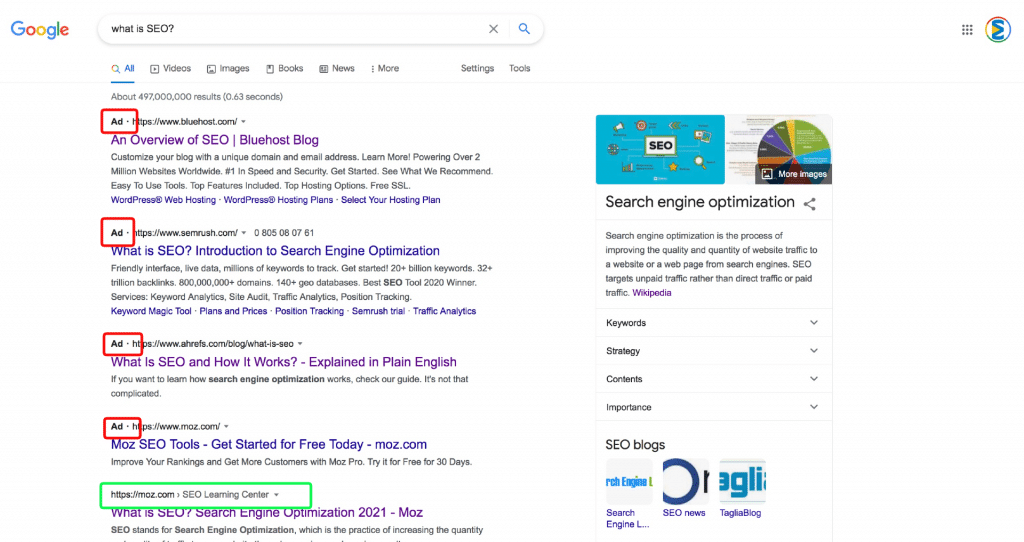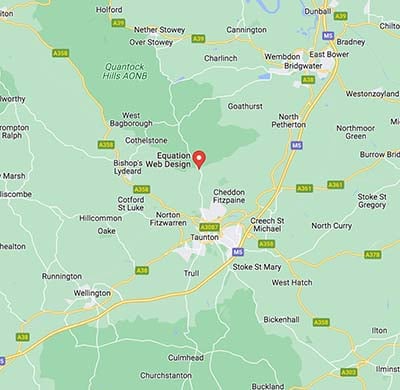What is Search Engine Optimization?
- 19th January 2021
- 2039hrs
- Ian Mills
SEO... what is it all about?
If you use the internet on a regular basis, or are a business owner with a website (and lets face it, nearly all of us fall into at least one of those categories) then you have surely heard of SEO – or search engine optimisation. In both of those cases, SEO is actually plays and essential part of how you interact with the internet whether you realise it or not!
It will be useful here just to offer a definiton – of which you can find many when you look into it. This one does a pretty good job for me:
“SEO is the art of encouraging search engines (most notably Google) to suggest your content to their users as the optimal solution to their request”
Bear in mind that search engines are pretty smart these days – and that, crucially, their main aim is simple – to provide users with the most suitable answer to their query, or the best solution to their problem.
In working to achieve this aim, you can imagine search engines such as Google to be a little bit like librarians for the web! They organise, index and reference all the information available, and then aim to deliver the most suitable resources upon request.
Given that there are over 180,000,000 websites online today, this is no small task!
And so what is SEO? Its the task of making your website get found amongst all the others.
Some Mind-Boggling SEO related facts...

68% of online experinces begin with a search engine

Google holds approximately 93% of the search engine market

70-80% of people ignore the paid search results and look only at the 'organic' search results.

Over 75% of people don't look past the first page of Google results.
One important thing to clear up...
There is one distinction that needs to be made here also. There is another (quicker) way of getting yourself to the very top of a search engine results page (or SERP) and that is to pay. In fact, nearly always, the results you find at the top of Google search page are exactly that – paid advertisements – show by the red boxes here:

In the example above, the first exampe of true ‘organic’ SEO is the green box. This is a unpaid result – the first page suggested by Google to answer the query that was submitted to it. Such a result provides the most precious traffic to a website, and it is this that SEO strives to acquire.
And so, how do you 'do' SEO?
Well, thats the million dollar question! SEO is a complex task, with a variety of different strategies being employed. But most importantly it should always be remembered something I mentioned earlier – Google (or any search engine) aims to please it users. SO how do you do SEO? You provide a website that is tailored to you prospective clients.
DONT FOCUS ON WHAT GOOGLE WANTS, FOCUS ON WHAT YOUR CLIENTS WANT.
Google will soon realise that you do this, and give you the credit you deserve.
Three key pillars of SEO can be identified – relevance, reliability and utility. As in, is your site relevant, is it trustworthy /credible and, finally, is your site something that users want to engage with? (Just because it is relevant, doesn’t mean that it is engaging!) It should be clear here, that all three of these factors are concerned with the end user. Again, this is where the focus of good SEO lies.
So, what is the takeaway here? Simple really – that investing in SEO needs to form part of the advertising and growth strategy of any business. There are many ways to achieve this, but all of them should force you to focus on your clients.






